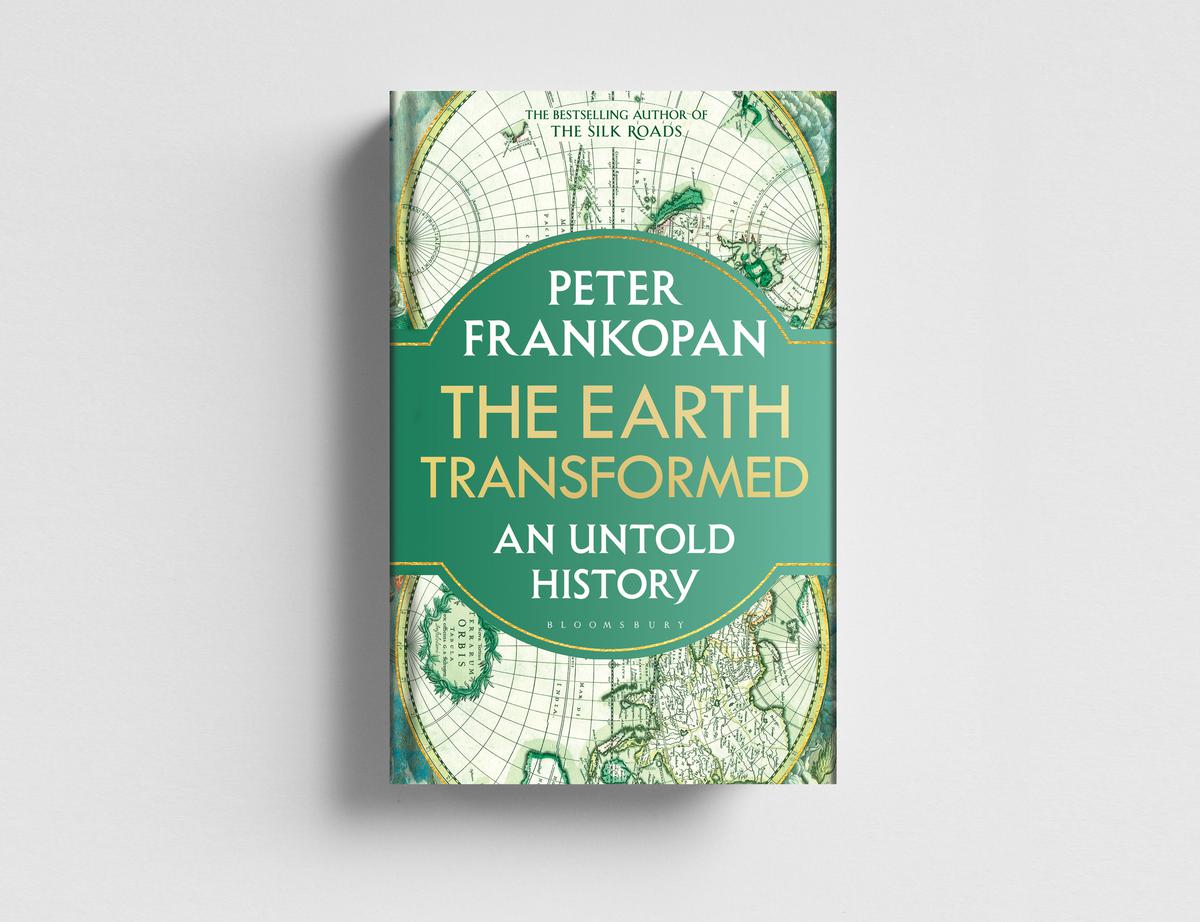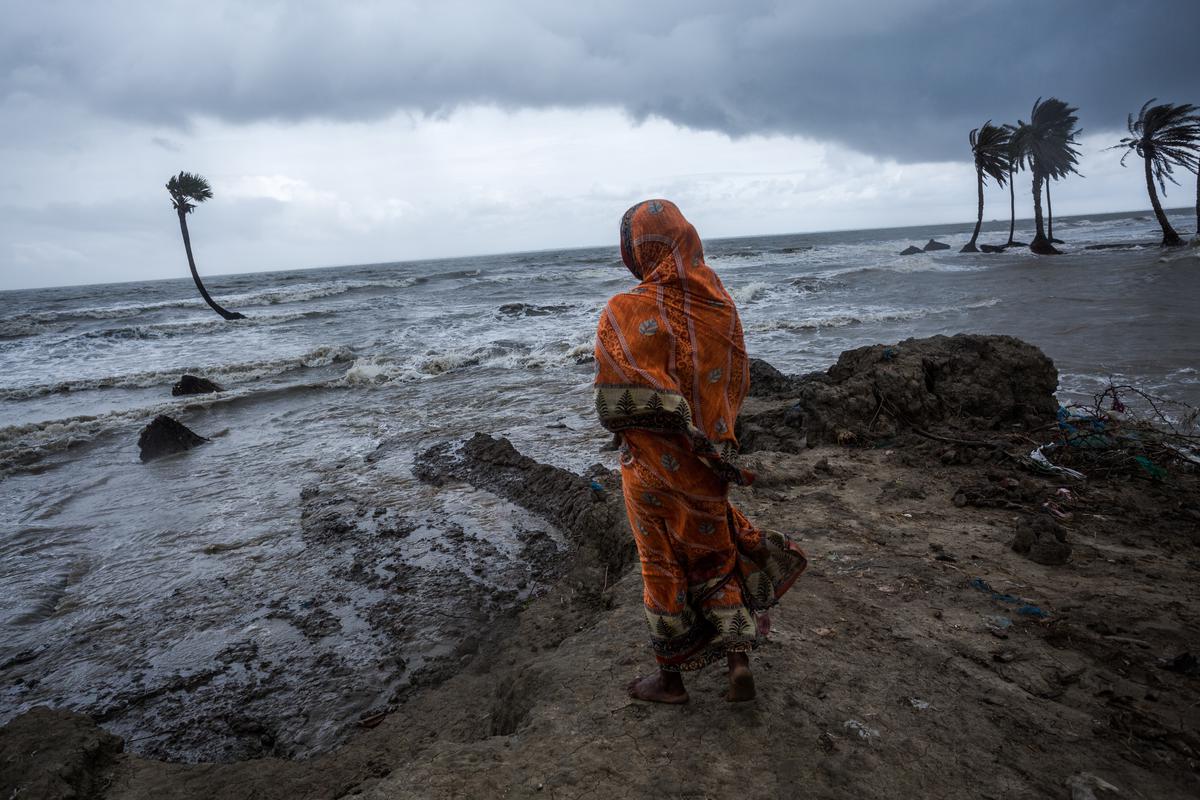In his latest book, Earth Transformed: An Untold History, Oxford historian Peter Frankopan Traces a wide period, geologically and historically, to map the role of climate in the history of civilization. Through the story of the rise and fall of empires, kingdoms, and colonies, he argues that humanity’s current engagement with global warming is not new and that the whims of climate processes, the result of over-exploitation of nature, control climate and ecological The crisis has long been central to the concerns of thinkers and rulers.
Historian Peter Frankopan
, photo credit: rohit chawla
In the Preface, you write that ‘the book will explain how our world has always been one of change, transition and transformation because outside the Garden of Eden, time does not stand still.’ Historians have always been writing the history of change and the different ages (Stone, Bronze, Industrial, Information) are witness to the changes that humanity has wrought on the earth. What ‘unsaid’ aspects do you highlight?
Yes, historians are chronicling the change. Vedic The texts – like earlier written records in different cultures – were in some ways about change, change and change. My book is different for three reasons. First, it covers the world’s natural history from Earth’s creation to the present day, so the chronological range is unusual. Second, it is a truly ‘global’ history, meaning that the focus is not just on Europe and Europeans or India and Indians, but on parts of the world that have often been completely ignored by historians – such as America, sub-Saharan Africa, Polynesia and Micronesia and the plains of Central Asia before Columbus. Above all, what makes it ‘untold’ is the fact that history has always been based on written texts and archaeological finds. Today, however, we are living through a revolution in how we can understand the past thanks to leaps and bounds in biological science, plant science, statistical modeling, genomics and more. Historians have never been able to measure the genetic similarity of the populations of the Indian subcontinent and Scandinavia; or the rainfall levels at Angkor, the capital of the great Khmer Empire; Or differences in rice varieties and their adaptability to climate change. Today we can; This means the story of the past can be told in full technicolor rather than dreary monochrome.
Humans are considered a flexible species as they adapt to various ecological niches. However, this often results in them over-exploiting their surroundings before leaving for new pastures. Do you think this kind of resilience is an admirable quality or, should we see it as a refusal to learn?
One of the problems is that we tend to overestimate the innate flexibility of humans. Our species has been on this earth for a really short time. If we take the first written script to be the beginning of ‘recorded history’ – meaning, when we can begin to learn what our ancestors were thinking and think worthy of recording – then we can understand the existence of this planet. make up 0.00001%. To think in terms of innate resilience is to assume that we can conquer evolution and that adaptability is not a problem for us. Biology suggests another set of answers. However, when we think about past adaptations, the tipping point usually comes because of settlements that have become victims of their own success: places that adapt either attract more settlers or local enable demographic growth. This puts a strain on resources; And if those resources are depleted due to over-exploitation or affected by weather events, war, disease, etc., large settlements can suddenly become very vulnerable.

Earth Transformed: An Untold History
Peter Frankopan
Bloomsbury India
₹850
From different eras you have selected examples of awareness among social elites of different societies about how human activities affect weather patterns and climate change. What is different about humanity’s current preoccupation with the effects of climate change?
People have always been concerned about weather, climate and climate change. The difference today is threefold. Firstly, there are more of us on this planet than ever before – not least in India, which is not only the most populous country on Earth, but has the most inhabitants ever. Second, the pace of climate change is unusually rapid. And third, we are playing a role in some of those changes because of the way we live and behave. There have been many natural changes in climate in the past; This time, we are involved in accelerating warming patterns.
Cities are usually centers of innovation, trade and creativity, but with their relentless hunger for resources often become agents of destruction. Is it the lesson of history that for humanity to survive, the idea of a city must die or at least be radically transformed?
This is a good question. Cities have always been inherently sensitive to tremors—there’s a reason why some of the great names of the past, like Harappa, Uruk, and others, are places for tourists interested in history, and not home to bustling populations. Our common ancestors understood this very well, which is why thought and planning went into building infrastructure to support a large and growing population. In today’s world, rapid urbanization means that planning ahead and investing are both difficult and can be costly. So that city living can put pressure on all kinds of resources, not the least on natural resources. As a result, many cities today are extremely polluted and bring great health concerns. A report suggests that the residents of Delhi breathe air which is equivalent to smoking two packs of cigarettes a day. In addition to health concerns and risk to lives, it affects work productivity as well as life expectancy, and puts a strain on healthcare. Clean Cities is one of the projects I’m working on – and I don’t mind the idea of making our urban spaces greener, more sustainable and less dangerous.

A woman stands in front of her house submerged in water due to tidal flooding in the Sundarbans
, Photo Credit: Getty Images
You have written about how concerns about deforestation prompted colonial administrators to mark forests as intact and to exclude indigenous communities living in them. However, that same administrator also sought ways to ensure that commodities were always available to feed consumption. Is this different from the current focus on harnessing renewable energy sources instead of fossil fuels, but not setting limits to consumption and economic growth?
We often make a strange equation when it comes to indigenous peoples because they are often seen in terms of both ethnicity and their lifestyle. It’s a very similar story with the nomadic peoples in the steppes of Central Asia. But generally, such people are very good stewards of the habitat they live in, managing its resources more sustainably than those who think they know better. The problem today is that we don’t price things fairly, so we only pay for what it costs, rather than what it’s actually worth. Therefore, we over-exploit because there are short-term rewards for doing so. It’s not the hardest problem in the world to fix; So I am optimistic that this can be addressed without affecting economic growth. There are many examples of how water consumption has been cut dramatically, for example, with no effect on growth. This can happen with clean energy as well.
Is humanity doomed to be at the mercy of the elements or would it, as a species, be wiser to focus our energy on finding new habitable planets to survive?
Seeking out new planets and other systems to live on because we’ve left it would seem like the worst possible response in some ways; It’s like throwing something away because you feel it is no longer right. We are not doomed. In the coming decades, I worry about nuclear escalation or faults, pandemic diseases, impactors as well as solar activity and volcanoes. But when fear strikes it is important to prepare properly. Regardless of where one lives on the planet today and regardless of political persuasion, the world of 2023 looks uncertain due to the rise of China, Russia’s invasion of Ukraine, AI and its capabilities, the indebtedness of major states that forces them to succumb to populism. makes it sensitive. And at worst heartburn, not to mention a host of other matters that can keep you awake at night. Planning ahead is far more valuable than spending time lying awake at night trembling with fear.